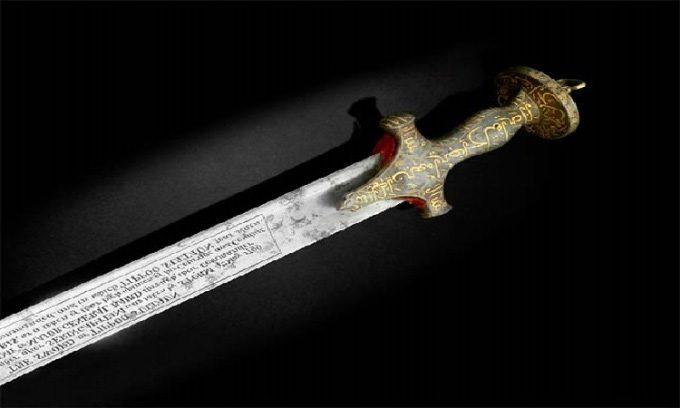The sword of King Tipu Sultan, over 200 years old, sold for $17.5 million, 2.5 times the previous record at an auction in London on May 23.

The exquisitely crafted sword of King Tipu Sultan. (Photo: Bonhams).
Initially estimated to be worth $2.5 million, the sword of King Tipu Sultan was auctioned in London on May 23 and achieved a staggering price of $17.5 million. This not only broke the record for the highest price ever paid for a sword but also set a new world record for an object from India/Islam.
The previous most expensive sword, known as the Boateng Saber, was from the 18th century. It was auctioned twice, first in 2006 for $5.93 million and again in 2008 for $7.7 million, featuring intricate decorations and engravings related to the Qing Dynasty Emperor Qianlong. However, the sword of King Tipu Sultan, sold by Bonhams Islamic and Indian Art in London, surpassed this record. According to Oliver White, the auction house’s head, the sword exemplifies outstanding craftsmanship.
King Tipu Sultan, also known as the Tiger of Mysore, was an 18th-century ruler of the Kingdom of Mysore in India. Renowned for his fierce resistance against British colonization efforts, Tipu Sultan frequently employed new technologies. He developed various military innovations and economic policies, including the use of rocket artillery against neighboring countries. On May 4, 1799, during the Fourth Anglo-Mysore War, the capital city of Seringapatam (now Srirangapatna) fell to British forces, marking the end of Tipu Sultan’s reign following his death in battle.
The sword of Tipu Sultan was crafted by a Mughal blacksmith, featuring the inscription “The King’s Sword”, and its gold-inlaid hilt describes five divine qualities. Although forged in India, the sword’s blade reflects a 16th-century design that originated from Germany.
In 1799, the sword was surrendered to British Army leader Major General David Baird, who witnessed Tipu Sultan’s death. Tipu was buried at Gumbaz, a mausoleum located in Srirangapatna, Karnataka, India, which also houses the tomb of his father, Hyder Ali, and his mother, Fatima Begum.


















































